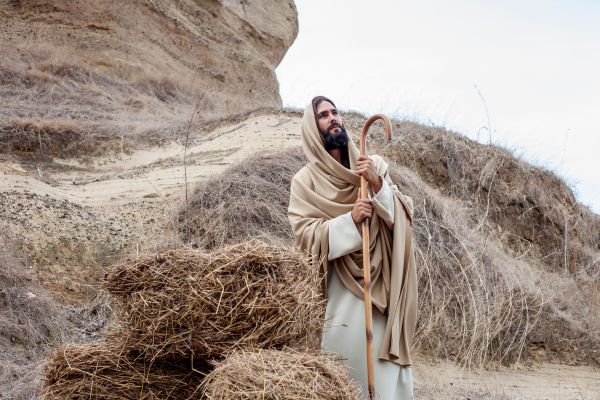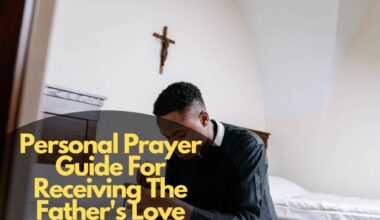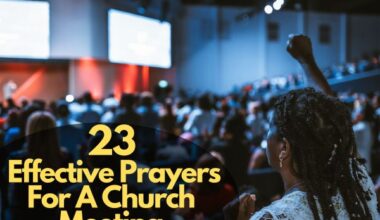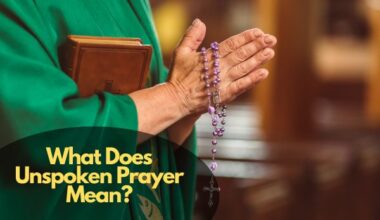Jesus’ prayer in the Garden of Gethsemane is a pivotal point in his life that shows us the breadth of his humanity and the agony he went through before his crucifixion. Jesus prayed to God intensely throughout this crucial time, expressing his anguish and, if at all possible, asking for a different course.
Did God Answer Jesus Prayer In Gethsemane
It begs the question: Did God hear Jesus as he prayed in Gethsemane? This article explores the meaning of Jesus’ petition, the character of God’s answer, and the deep relevance it has for believers to answer this question.
Jesus in the Garden of Gethsemane
Jesus had been teaching his disciples and serving the people for three years. It was now time for him to accomplish the primary reason he had come to earth, which was to give his life as a ransom for our sins. Then he would rise once more, making room for others to be raised to live with him. He and his disciples went to the Garden of Gethsemane to pray to prepare for his death. Jesus encountered the worst difficulty of his earthly existence while he was in the garden. Let’s investigate the reason.
Jesus’ Imminent Suffering
What was he going through in that turbulent episode?
Then Jesus went with his disciples to a place called Gethsemane, and he said to them, “Sit here while I go over there and pray.” He took Peter and the two sons of Zebedee along with him, and he began to be sorrowful and troubled. Then he said to them, “My soul is overwhelmed with sorrow to the point of death. Stay here and keep watch with me.” Going a little farther, he fell with his face to the ground and prayed, “My Father, if it is possible, may this cup be taken from me. Yet not as I will, but as you will.” (Matthew 26:36-39)
Jesus’s intense anguish at what was going to happen to him was evident at Gethsemane. Jesus, a person, was aware that he would suffer while hanging on the cross to atone for sin. Furthermore, Jesus would not only die physically but also experience a separation from the Father. He would be cut off from his joy, strength, and vitality.
Jesus’ Humanity
Jesus prayed in the Garden of Gethsemane, asking his Father to remove “this cup” from him if at all possible. He was curious as to whether there was any way he could stop what he was going to go through. Jesus’ body shook at what was about to happen, even if his soul was strong. This demonstrated his humanity.
Jesus required the strength of his Father to finish the mission because his flesh was beginning to fail him. According to Luke, the Father then sent an angel to tend to him.
An angel from heaven appeared to him and strengthened him. And being in anguish, he prayed more earnestly, and his sweat was like drops of blood falling to the ground. Luke 22:43-44
The Father’s Answer In The Garden
It became evident after Jesus’ third prayer that the Father would not grant his request. Jesus was aware that he had to sip from the cup that the Father had given him.
Jesus’ plea at Gethsemane was heard by God, albeit it might not have been what he had hoped or expected. Jesus cried out to God in the Garden of Gethsemane, expressing his sorrow and pleading for the cup of suffering to be removed from him. But Jesus also said, “Yet not as I will, but as you will,” submitting himself to God’s plan.
Jesus asked God to provide him with the ability to fulfil his mission of offering himself as a sacrifice and providing forgiveness for humanity via his crucifixion and resurrection. Even if Jesus might have desired a different course, in the end, he submitted to God’s will and accepted his wants to further the larger good of salvation.
It is significant to remember that, despite the tremendous pain he knew he would experience, Jesus’ prayer in Gethsemane demonstrates his humanity as well as the depth of his obedience and faith in God. Despite the challenging conditions, God’s response resulted in Jesus’ death on the cross, which proved to be the ultimate victory over sin and death.
“May your will be done,” Jesus said to the Father in his last prayer. We all need to pray this prayer after our doubts, struggles, setbacks, and tears. Whether the Father fulfils our request or not, what we should always want is what is in his will. Jesus then went back to the three disciples, discovered that they were once again asleep, and roused them.
Then he returned to the disciples and said to them, “Are you still sleeping and resting? Look, the hour has come, and the Son of Man is delivered into the hands of sinners. Rise! Let us go! Here comes my betrayer!” Matthew chapter 26:45-46
What was the Cup That Jesus Was to Drink?
We know that Jesus prayed to the Father to spare him from death because of the verse in Hebrews 5. This implies that the cup of death was the one that Jesus was pleading with the Father to take away in the Garden of Gethsemane. It was, more precisely, martyrdom or death by persecution.
During Jesus’ ministry, the sons of Zebedee had their mother approach Jesus and ask that he give them powerful and prestigious places in his kingdom. The Lord gave them this response:
“You don’t know what you are asking,” Jesus said to them. “Can you drink the cup I am going to drink?” “We can,” they answered. Jesus said to them, “You will indeed drink from my cup, but to sit at my right or left is not for me to grant.” Matthew 20:20-23
Jesus told these disciples they would someday drink the cup he was going to drink. And we know from history that the disciples suffered intense persecution at the hands of the Jewish religious leaders, and later from the Roman government. Most of them were martyred. So, they did drink the same cup that Jesus drank—that of martyrdom.
Conclusion
The topic of whether God heard Jesus’ prayer in the Garden of Gethsemane is raised. A closer look reveals that God did answer Jesus’ petition to be spared the agony and crucifixion, even though it may appear that God did not grant Jesus’ request. Instead of sparing Jesus from suffering, God responded by giving him the fortitude, bravery, and determination to complete his goal of rescuing humanity. Jesus’ prayer in the Garden of Gethsemane demonstrates his total surrender to God’s will, despite great suffering and cost. It is a potent illustration of submission, faith, and obedience to God’s plan.
Jesus prayed, and God granted him the ability to perform the ultimate act.
In conclusion, God did answer Jesus’ prayer in the Garden of Gethsemane by providing him with the strength and resolve to fulfill his mission of salvation. The answer was not to avoid suffering but to embrace it for the sake of humanity. This profound moment serves as a testament to Jesus’ obedience and the depth of God’s love for us. It invites us to trust in God’s plan for our lives, even in the face of adversity, knowing that he is with us every step of the way.
Frequently Asked Questions (FAQ)
Q1: What does Jesus’ prayer in Gethsemane mean?Jesus’ prayer in
Gethsemane is very important because it marks a pivotal moment in the Christian narrative. It is a reflection of both Jesus’ human nature and the grave, profound, and otherworldly struggle he faced prior to his crucifixion.
Q2: In Gethsemane, what did Jesus ask God for?
According to the Good Book, Jesus pleaded with God to spare him from the impending crucifixion, saying, “Father, if you are willing, take this cup from me; yet not my will, but yours be done.” (NIV) Luke 22:42
Q3: Was Jesus’ request at Gethsemane granted by God?
According to the Good Book, God denied Jesus’ request to be spared from the crucifixion. All things considered, Jesus gladly yielded to the will of God, content to wait for humanity to heal.
Q4: Given that he was aware of the outcome, why did Jesus ask in Gethsemane?
Because Jesus was fully divine and fully human, he went through legitimate human emotions and struggles. In Gethsemane, his prayer demonstrates his humanity, and in doing so, he shows that he is willing to submit to God’s will despite great difficulty.






